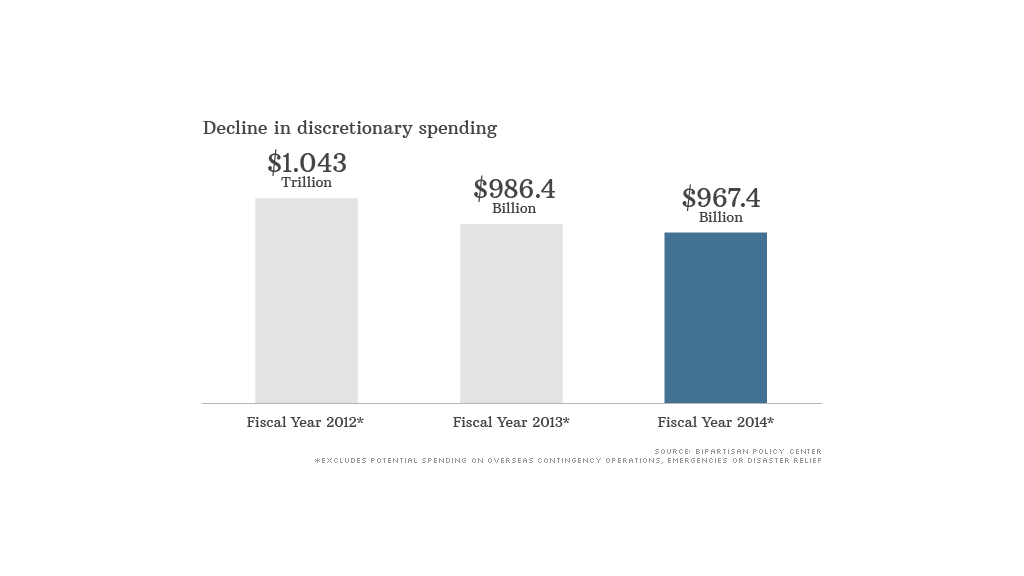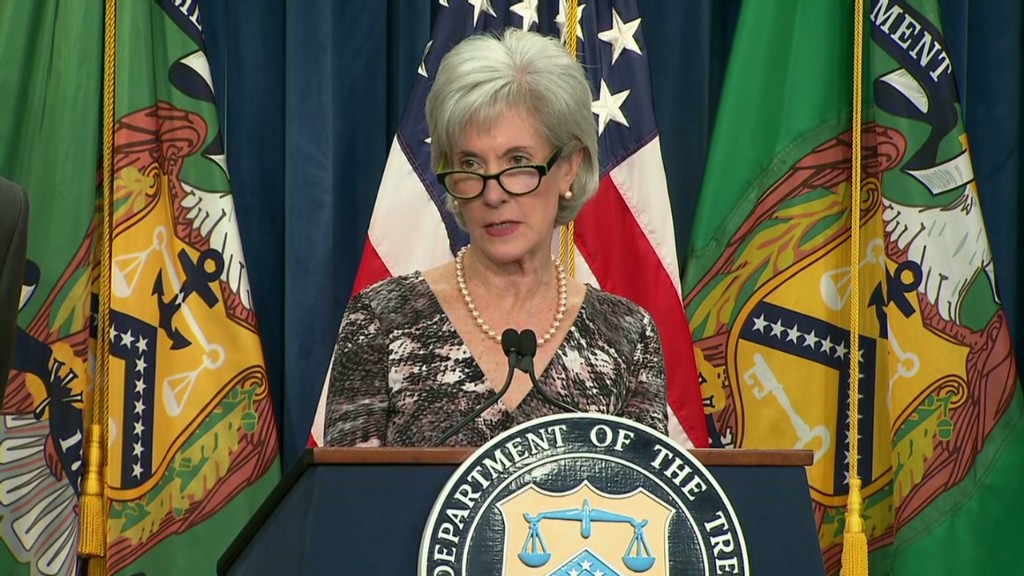
There's been a lot of concern about the effects of the spending cuts under the so-called sequester this year. But it's likely that federal spending will soon go down even further in many ways.
That's because, barring action by lawmakers, the cap on total defense and domestic "discretionary" spending is set $19 billion lower for fiscal 2014, which begins Oct. 1.
In other words, the magnitude of the 2013 cuts will be preserved and $19 billion more will need to be cut from the discretionary budget, which funds a vast number of government programs and agencies from national parks to the FBI.
The only difference between this year and next, however, is that lawmakers and agencies will have more flexibility in how spending is cut.
This year sequestration mostly required agencies to make cuts across the board. Next year, lawmakers are simply obligated to keep discretionary spending below the statutory cap.
So in 2014, some agencies may be spared, while others may be hit even harder than they were this year.
In addition, the law calls for another across-the-board cut in so-called mandatory spending next year, a fact often overlooked in budget discussions, according to experts at the Bipartisan Policy Center.

Social Security, Medicaid, food stamps and several other mandatory programs will be exempt. But others are not -- including federal extensions of unemployment benefits, farm subsidies and WIC, a supplemental nutrition program for women and children.
So those and other programs would be subject to uniform cuts starting in October. It's not clear yet how big benefit reductions would be in various programs because of a complex set of factors.
Congress, of course, has the power to prevent the cuts and lift the discretionary spending cap. But few expect that to happen, at least anytime soon.
The House and the Senate are on different pages when it comes to setting overall discretionary spending levels for next year. They also differ on how much to spend on defense vs. domestic programs.
Related: 4 myths about the spending cuts
Some Senate Republicans have repeatedly blocked efforts to settle differences between the House and Senate 2014 budgets. Their stated reason: The negotiations might include consideration of raising the country's debt ceiling.
The White House budget office, meanwhile, threatened to veto two House appropriations bills -- for homeland security and military construction -- on the grounds that they include "draconian cuts to middle-class priorities."
If lawmakers don't do anything by Sept. 30, the government would be forced to shut down on Oct. 1. But that's not a politically attractive option for either party.
Therefore, it's expected that lawmakers will pass yet another stopgap measure known as a continuing resolution to fund the government for a few weeks or a few months.
But unless that resolution expressly calls for the repeal or delay of the mandatory spending sequester, those cuts will occur on Oct. 1.
And if the resolution calls for discretionary funding at a higher level than the cap set in law, a second round of automatic budget cuts will be imposed on defense and domestic programs later in fiscal 2014.
To make matters even more complex, resorting to a continuing resolution would mean further negotiations about 2014 spending will collide with a heated debate over the debt ceiling, which will need to be raised in the fall.


